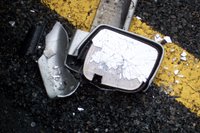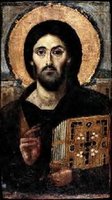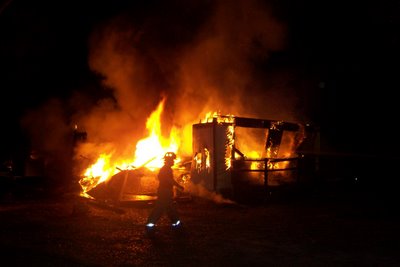 When I ride around the county where I live and work I see the geographical landmarks, buildings, houses, roads. But I, and many people in my business, also see a very different county, like two different maps of the same area laid one upon the other. One world is physical; the other is a world of grief, of memory and emotion, a world of despair, a world of dreams long dead. As I drive around I remember a suicide here, a murder there, a fatal traffic accident somewhere else. So much mayhem. Children and elderly citizens neglected, spouses abusing each other and their children, leaving many with wounds that will heal and others that will fester for a lifetime. A world full of random acts of violence and senseless acts of destruction.
When I ride around the county where I live and work I see the geographical landmarks, buildings, houses, roads. But I, and many people in my business, also see a very different county, like two different maps of the same area laid one upon the other. One world is physical; the other is a world of grief, of memory and emotion, a world of despair, a world of dreams long dead. As I drive around I remember a suicide here, a murder there, a fatal traffic accident somewhere else. So much mayhem. Children and elderly citizens neglected, spouses abusing each other and their children, leaving many with wounds that will heal and others that will fester for a lifetime. A world full of random acts of violence and senseless acts of destruction.I was at a scene once where a man shot his wife in the head while she was on the telephone with 911 and while two of their children looked on. He then turned the gun on himself and compounded the injury to the children by also committing suicide in front of them. One of the young brothers who witnessed the incident said that the battery (the shell casing) from his Daddy’s gun had hit him.
It’s enough to test your faith.
The world used to seem out of control. Many times I thought I wanted no part of any God who would let this continue. How could a God who is omniscient and omnipotent not intervene? The only conclusion I could reach was that God did not exist. I believed (and was naïve enough to believe that it was an original concept) that we created God in our own image, as a sort of consolation prize. Given the choice between an eternity in heaven or an eternal dirt nap, many opt for the clouds and harps.
That was of course my own arrogance, my wanting to set myself up as God so that I would have a reason to not follow the rules, to justify my bitterness, to blame the evil in the world on the creator. It took a long time to reconcile God as I now understand Him with the hands-off god I once imagined
I finally realized I was the problem. Blaming God was the easy part. Being part of the solution was hard. Perhaps I was the one who was wrong. Perhaps there are immutable truths and eternal sources of consolation. Perhaps I had to conform. Perhaps I had to realize that I could not come up with all the answers. Perhaps in all the chaos I could be calm and quit being mad. Perhaps in God there is deliverance and redemption.
So when I am confronted with an act of barbarity I still feel the pain, I still mourn for the victim but I no longer blame God. I see Him in the healing, in the ability to recover from loss, the ability to hope when everything is hopeless. I still have the map in my head but now I see acts of grace in a world of wonder, a world full of dreams yet to be lived.
It has been a long, strange trip but for probably the first time in my life I do not feel alone. Not the everyday riding in the car by myself kind of alone, but the cold cosmic aloneness. God is here if I just open my eyes and shut my mouth.


